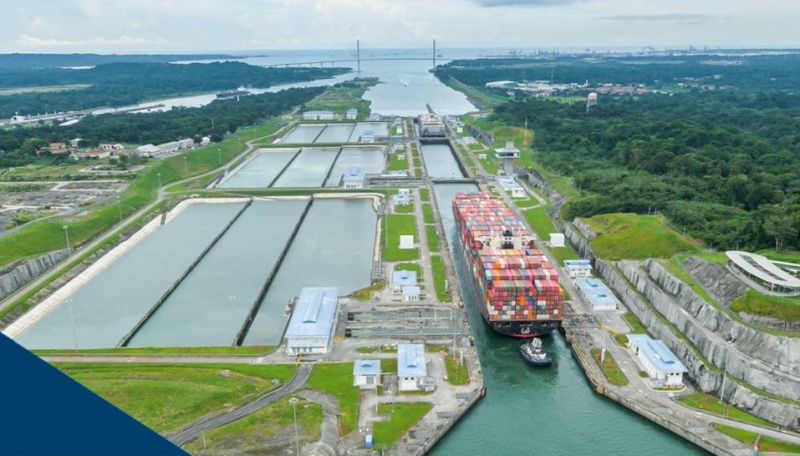
[ad_1]

the Panama Canal and more than 150 other organizations across the maritime value chain sign an industry-led call for world leaders to commit to decarbonizing international shipping by 2050, support industrial-scale zero-emission shipping projects through national action and deliver the policy measures that will make zero-emission shipping the default choice by 2030.
The signatories to the Call to Action for Shipping Decarbonization include many of the world’s largest actors in global trade: A.P. Moller – Maersk, BHP, BP, BW LPG, Cargill Ocean Transportation, Carnival Corporation, Citi, Daewoo Shipbuilding & Marine Engineering, Euronav, GasLog, Hapag-Lloyd, Lloyd’s Register, Mitsui O.S.K. Lines, MSC Mediterranean Shipping Company, Olympic Shipping and Management, Port of Rotterdam, Rio Tinto, Shell, Trafigura, Ultranav, Volvo, and Yara. Each signatory has made climate commitments and is taking concrete actions.
“Beyond being a shortcut for global trade, the Panama Canal has long recognized that shipping decarbonization requires close collaboration and commitment from all players towards a more sustainable supply chain,” said Panama Canal Administrator Ricaurte Vásquez Morales. “Earlier this year we set the strategic objective of becoming a carbon-neutral entity by 2030 while maintaining our commitment to participate in the maritime industry’s efforts worldwide.”

Image Credits: pancanal.com
As cited in a new brief issued by the UN Global Compact Charting a 1.5 C Trajectory for Maritime Transport, the Panama Canal set their own decarbonization targets while also establishing initiatives to encourage shipping lines to minimize their carbon footprint, demonstrating actions that can be taken to accelerate decarbonization across the shipping value chain.
The Panama Canal’s aims to become carbon neutral by 2030 were officially announced in April 2021, however it began tracking its carbon footprint in 2013 with the intention of better aligning its operations to the global objectives of reducing emissions to mitigate and adapt to climate change. The waterway bolstered these efforts with an innovative idea in 2016 promoting green transits thought the Green Connection Environmental Recognition Program and by creating an Emissions Calculator in 2017, a tool that not only allows shipping lines to measure their greenhouse gas (GHG) emissions per route, but also strengthens the Canal’s analysis of the emissions produced by its own day-to-day operations.
The Canal has since gone on to introduce various programs to cement its value and standing as a green route for maritime trade, from offering incentives for sustainable shipping lines to partnering with communities in the Panama Canal watershed to ensure their sustainable use of the area’s natural resources. The Panama Canal has also grown to be an active participant in industry discussions and forums led by the International Maritime Organization (IMO) and United Nations Climate Change Convention (UNFCCC) on ushering in a more sustainable era for global shipping.
Ahead of critical negotiations at COP26 this November, the Panama Canal and other signatories of the Call to Action for Shipping Decarbonization now urge world leaders to:
- Commit to decarbonizing international shipping by 2050 and deliver a clear and equitable implementation plan to achieve this when adopting the IMO GHG Strategy in 2023.
- Support industrial scale zero emission shipping projects through national action, for instance by setting clear decarbonization targets for domestic shipping and by providing incentives and support to first movers and broader deployment of zero emissions fuels and vessels.
- Deliver policy measures that will make zero emission shipping the default choice by 2030, including meaningful market-based measures, taking effect by 2025 that can support the commercial deployment of zero emission vessels and fuels in international shipping.
Ships transport around 80% of global trade and account for about 3% of GHG emissions. In 2018, the IMO adopted an initial GHG strategy that sought to reduce international shipping’s total annual GHG emissions by at least 50% of 2008 levels by 2050. The strategy is set to be revised in 2023.
Reference: pancanal.com
Panama Canal And Over 150 Organizations Call For Govt. Action To Decarbonize Shipping By 2050 appeared first on Marine Insight – The Maritime Industry Guide
[ad_2]
This article has been posted as is from Source